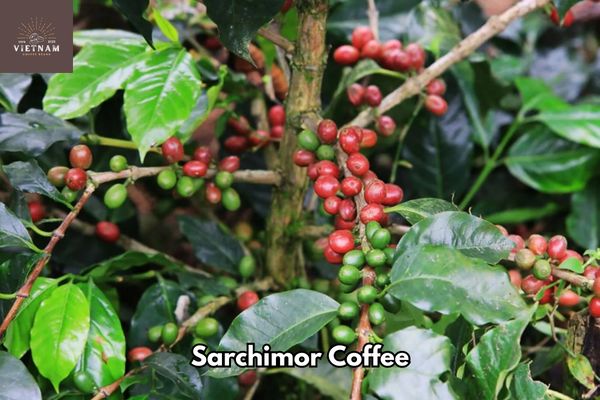As a coffee lover and a researcher, I have always been fascinated by the potential health benefits of this beloved beverage. Coffee is not only a source of caffeine but also contains various antioxidants that could potentially improve our health in numerous ways.
Antioxidants are compounds that protect our cells from oxidative stress – a process where free radicals damage our DNA, proteins, and other important molecules. Free radicals can come from various sources such as pollution, radiation, and even normal metabolic processes in our bodies.
Antioxidants neutralize these free radicals by donating an electron or hydrogen atom, thus preventing them from causing further damage.
Some well-known antioxidants include vitamins A, C, E, and beta-carotene. However, coffee beans contain many other types of antioxidants that are less known but equally important for our health.
In this article, I will explore how the Potential of Antioxidants in Coffee Beans can improve your health. Learn about the powerful health benefits of antioxidants and how they can help protect your body from harmful free radicals.
Understanding Antioxidants and Their Benefits
You’re probably wondering why antioxidants are so important, and lucky for you, they have a whole host of benefits for your body.
Antioxidants are compounds that protect our cells from damage caused by free radicals. Free radicals are unstable molecules that can cause oxidative stress in our bodies, leading to chronic diseases like cancer, heart disease, and Alzheimer’s. Antioxidant-rich foods like coffee beans help prevent this damage.

One of the most significant health benefits of antioxidants is their ability to reduce inflammation in the body. Chronic inflammation is linked to many diseases, including arthritis and type 2 diabetes.
By neutralizing free radicals that cause inflammation, antioxidants help maintain healthy cellular function and reduce the risk of developing these conditions.
Another benefit of antioxidants is their ability to improve brain function. Studies have shown that regular consumption of antioxidant-rich foods can enhance cognitive abilities such as memory and attention span.
This is because oxidative stress can impair brain function, but antioxidants counteract this effect by protecting brain cells from damage.
Antioxidants play a crucial role in maintaining overall health and well-being by preventing cellular damage caused by free radicals. Coffee beans are a great source of antioxidants, making them an excellent addition to any diet wanting to unlock the potential benefits associated with consuming antioxidant-rich foods.
Exploring the Antioxidant Content of Coffee Beans
Let’s delve into the fascinating world of coffee bean antioxidants and discover what makes them so beneficial for our health. When it comes to coffee brewing, most people aren’t aware that coffee beans contain an abundance of antioxidants.

These compounds work by neutralizing harmful free radicals in our bodies, which can cause cellular damage and increase the risk of chronic diseases such as cancer and heart disease. The antioxidant content of coffee beans varies depending on several factors such as roast level, origin, and processing methods.
However, studies have shown that some types of coffee beans contain higher levels of antioxidants than others.
For instance, Robusta beans are known to have a higher concentration of chlorogenic acid – a potent antioxidant – compared to Arabica beans.
Additionally, the way coffee is brewed can also affect its antioxidant extraction. Brewing methods such as French press or espresso tend to extract more antioxidants compared to drip brewing.
Incorporating coffee into your daily routine can be an easy way to boost your antioxidant intake and promote overall health. However, it’s important to remember that excessive consumption may have adverse effects such as insomnia or anxiety due to caffeine content.
A moderate amount (1-2 cups per day) can provide numerous benefits while still allowing you to enjoy your favorite drink without any negative consequences.
So next time you’re sipping on a cup of joe, take comfort knowing that you’re also doing something good for your body!
Comparing Antioxidant Levels in Coffee Beans vs. Other Foods
If you’re curious about the antioxidant levels in other foods, there are some surprising sources that rival even your beloved cup of coffee.
In fact, many plant-based foods are rich in antioxidants, which can help protect your cells from damage caused by free radicals. One study conducted by the Journal of Agricultural and Food Chemistry found that blackberries had an even higher antioxidant capacity than coffee beans.
To put things into perspective, let’s take a look at a table comparing the antioxidant levels in common foods:
| Food | Antioxidant Capacity |
|---|---|
| Coffee Beans | 1,299 μmol TE/100g |
| Blackberries | 5,347 μmol TE/100g |
| Pecans | 17,940 μmol TE/100g |
| Dark Chocolate | 20,816 μmol TE/100g |
As you can see from this chart, pecans and dark chocolate have significantly higher antioxidant capacities compared to coffee beans.
However, it’s important to note that different methods of measuring antioxidant content may yield varying results.
While coffee is still a great source of antioxidants and has numerous health benefits, it’s worth exploring other options for diversifying your diet and increasing your intake of these beneficial compounds.
Incorporating small portions of nuts or dark chocolate into your daily routine could help boost your overall antioxidant intake.
The Role of Antioxidants in Preventing Chronic Diseases
Understanding how antioxidants play a role in preventing chronic diseases can help you make informed decisions about incorporating antioxidant-rich foods into your diet.
Antioxidants are compounds that neutralize harmful molecules called free radicals, which can cause damage to cells and contribute to chronic diseases like cancer, heart disease, and Alzheimer’s.
By reducing oxidative stress and providing anti-inflammatory effects, antioxidants can protect the body from these negative outcomes.
Here are three specific ways antioxidants work to prevent chronic diseases:
- Antioxidants combat inflammation: Chronic inflammation is linked to many serious health conditions, including arthritis, diabetes, obesity, and some cancers. Studies have shown that consuming antioxidant-rich foods can help reduce markers of inflammation in the body.
- Antioxidants protect against DNA damage: Free radicals can cause damage to DNA molecules inside cells, which may lead to mutations and an increased risk of cancer. Antioxidants can neutralize these harmful molecules before they cause harm.
- Antioxidants support healthy aging: As we age, our bodies become less efficient at producing antioxidants naturally. However, by consuming foods rich in these compounds (such as coffee beans), we can continue to support our bodies’ ability to fight off oxidative stress and prevent age-related diseases.
Overall, understanding the role of antioxidants in preventing chronic diseases underscores the importance of choosing a balanced diet full of nutrient-dense foods like fruits and vegetables – but don’t forget about coffee!
Incorporating high-quality coffee beans into your daily routine is a delicious way to boost your antioxidant intake and support optimal health as you age.
Future Research Directions for Antioxidants in Coffee Beans
You can explore new research directions for antioxidants found in coffee beans to gain a deeper understanding of their potential benefits for your health. Antioxidants are essential micronutrients that counteract oxidative stress and damage caused by free radicals in the body. Coffee beans contain high levels of these compounds, making them a potential source of health-promoting properties.
Future studies could focus on improving antioxidant extraction methods from coffee beans and evaluating their bioavailability in humans. Antioxidant extraction from coffee beans is an area that requires further investigation.
Researchers could explore novel approaches to extract higher levels of antioxidants from coffee beans, such as optimizing roasting conditions or using alternative solvents during the extraction process.
This would not only improve our understanding of the antioxidant content in different types of coffee but also help develop more effective dietary supplements or functional foods containing these beneficial compounds.
Bioavailability studies that assess how efficiently antioxidants found in coffee beans are absorbed and utilized by the body should also be conducted. Such studies would provide valuable insights into how much and what type of coffee we need to consume to achieve optimal health benefits.
Additionally, investigating whether combining different sources of antioxidants enhances their overall effectiveness could lead to innovative strategies for disease prevention and management.
Research on unlocking the potential benefits of antioxidants found in coffee beans is ongoing, with exciting avenues for exploration still open for discovery.
By increasing our knowledge about these potent plant-based nutrients, we can potentially improve our health outcomes while enjoying one of the world’s most beloved beverages!
Frequently Asked Questions
Conclusion
In conclusion, unlocking the potential of antioxidants in coffee beans is crucial for promoting health and preventing chronic diseases. As a coffee lover myself, I’m thrilled to learn about the high antioxidant content of my favorite beverage.
From reducing inflammation to protecting against cancer and Alzheimer’s disease, antioxidants offer numerous benefits that can’t be ignored.
Although more research is needed to fully understand the mechanisms behind these benefits and how they can be optimized, it’s clear that incorporating coffee into a balanced diet can have significant health advantages.
So next time you brew yourself a cup of joe, remember that you’re not only satisfying your taste buds but also nourishing your body with powerful antioxidants.






